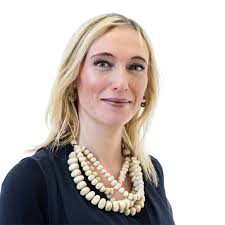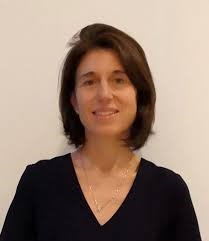Ophthalmology
Head of School

Mrs Cordelia McKechnie is a Consultant Ophthalmologist working at Whipps Cross Hospital, Barts Health NHS Trust and works in the subspecialty of vitreoretinal surgery.
She is committed to teaching and training doctors and other members of the multi-disciplinary team and has a Masters in Medical Education. Mrs McKechnie was a college tutor for six years and a Training Programme Director (TPD) for North Thames Ophthalmology from 2012-2017. She was Chair of the UCLP Ophthalmology training programme from 2016-17. She became Deputy Head of the London School of Ophthalmology in 2017. She is Chair of the College Tutor Training the Trainers (TTT), part of the surgical skills faculty and is an examiner at the Royal College of Ophthalmology.
Deputy Head of School

Miss Ourania Frangouli
Training Programme Directors
North London:
Miss Rahila Zakir (ST1-3, Induction Simulation Lead)
Jo Hancox (ST4-6 and Conference Lead)

Miss Alessandra Martins (ST7 North and South, TSC Lead)
South London:
Suzie Morley (ST1-7 and STC Chair)

SuppoRTT and ACP Lead:
Dhanes Thomas

OVERVIEW OF THE LONDON TRAINING PROGRAMME
London is the largest School of Ophthalmology in the UK. We have more than 140 trainees, training in 18 trusts across the city. Our ST1-6 trainees are divided into 2 sector-based programmes – South London (SL), North London (NL). Our ST7 trainees from North and South Thames are appointed by competitive application to the highly regarded specialty TSC pan-London programme.
VISION
The vision for the London School of Ophthalmology is to provide the highest quality of training using the vast wealth of clinical resources across London. As part of Health Education England we are also committed to the Medical Education reform programme to improve working lives of trainees which includes flexible training, supported return to training, reducing the costs of training and providing transparency.
The concentration of large centres, specialty hospitals, regional healthcare and research centres to meet the demands of the eight million Londoners and wider UK population means we can offer programmes in all the subspecialty areas of ophthalmology. With its rich variety of cultures, nationalities and social backgrounds, the capital offers any trainee a full and rewarding experience. We enable Ophthalmic specialty trainees and HEE funded Allied Health Professionals to become independent practitioners with the competencies and skills to provide care and manage teams for patient led care in the modern NHS.
Training programme/Specialty units/Areas in London
We provide training at world-renowned training institutions as well as excellent district general hospitals.
- North London: Central Middlesex Hospital, Great Ormond Street, Hillingdon Hospital, Imperial, Moorfields Eye Hospital, National Hospital for Neurology, North Middlesex Hospital, Queen’s Hospital (Romford), Royal London Hospital, Barts Hospital, Royal Free Hospital, Western Eye Hospital, Whipps Cross Hospital, Chelsea and Westminster
- South London: Epsom and St Helier’s Hospital, Kings College Hospital, Kingston, Moorfields at Croydon Hospital, Moorfields at St George’s Hospital, Princess Royal Queen Mary Sidcup, St Thomas’ Hospital
Each unit has an Ophthalmic Educational faculty of a College Tutor and Educational Supervisors who oversee the day to day activities of trainees, provide support for the trainees personal development plan and whom take part in training events at local, regional and national level, such as ARCPs, courses and recruitment.
Specialty Training Board Information
The London Specialty School of Ophthalmology holds Specialty Training and School Board meetings three times per year. Susie Morley is STC Chair. The purpose of these groups are to provide governance and brings together training leads from postgraduate medical training programmes, trusts, trainee reps and patient/lay reps from across the two London local education and training board areas to consider issues of mutual interest in relation to Ophthalmology training, and to foster and share good training practice on a pan London basis.
Conference information
The London Specialty School of Ophthalmology runs a conference for trainees and trainers on an annual basis. Details about conferences can be found in the events calendar here
Simulation Training
We provide a programme of simulation training that benefits trainees and patients by providing a safe environment to develop technique and an understanding of surgical skills, including microsurgery, that is required for Ophthalmic medical care.
Mr George Saleh runs the Eye simulation programme for HEE London trainees.
All years (ST1-7):
Access to Eyesi cataract surgical simulator with VR magic
Simulation training in squint surgery
Simulation of oculoplastics and trauma, including glue to cornea and removal of eye.
ST1: One to one Eyesi programme (run for HEE by Mr George Saleh)
Microsurgical skills course
Basic phacoemulsification course
Each ST1 has access to a desk mounted microscope for practice of surgical skills
ST1-3: Basic laser simulation
Use of basic phacoemulcification eyes to mount in Ferris head (available in all local units)
ST4-7: Advanced laser simulation.
Anterior vitrectomy training using advanced phacoemulcification eyes in local units with Ferris simulation head.
Outside of the pandemic, there is opportunity to attend a two-day cadaver squint course
Examination Training
Local support for part 1 examination.
There is In-house training for RCOphth Examinations with exam preparation for Refraction Exam organised in many local units, often in conjunction with local optometric colleagues.
Exam Preparation for Part 2 FRCOphth organised at Moorfields, Imperial and Royal Free Hospitals
Academia and Research
The London programme has a strong track record of ACF and ACL trainees who have successfully completed CCT and progressed to academic careers. On average there are 1 ACF posts advertised and 1 ACL posts advertised annually. Research Opportunities include clinical trials, lab research and big Data analysis at Guys and St Thomas, Institute of Ophthalmology, Kings College Hospital, Moorfields, National Hospital For Neurology, Great Ormond Street and Imperial as well as local research projects at all placements.
Leadership and Management Opportunities
The London School of Ophthalmology has a spiral Leadership Curriculum. All trainees from ST1-7 choose two projects per year from the curriculum. Educational supervisors in all units agree the projects with the trainee. Over the 7 years trainees develop a thorough grounding in all aspects of Leadership from managing oneself, reflective writing, managing teams, introducing new services, financial management, QIPP and preparing for consultant life.
Out of Programme - OOP opportunities
Trainees have also been granted OOP opportunities for Training, Research, Teaching Fellowships, Darzi Fellowships, TOPOL fellowships and overseas experience e.g. recently in Bangladesh, Australia, West Indies, USA etc. Trainees are expected to undertake OOP only from end of ST3 to end of ST5, as unless there are exceptional circumstances they return to the training programme for the ST6 and ST7 years with up to date evidence when consideration is being made to forwards them for the award of Completion of Specialist training.
Final Year Trainee Selected Component - TSCs
All London trainees have the opportunity to apply for TSCs, which are currently 12 months in duration, in their ST7 year providing they are on course to complete core training by the end of ST6. TSCs are available in paediatrics, glaucoma, medical retina, uveitis, vitreo-retinal surgery, oculoplastics, external disease/cornea and neuro-ophthalmology. They are appointed though competitive selection.
Annual Review of Competency Progression - ARCPs
Annual reviews are undertaken to assess competency progression within absentia panels. This is in the summer for the majority of trainees. Some trainees will be out of sync with the training years, so a CCT calculator is used to identify how many months they have completed in training and the ARCP panel with assess the evidence and provide an outcome for the pro rata time completed since the last ARCP.
Trainees with an adverse outcome are informed of the decision by a senior trainer and the reasons and objectives that need to be met are documented on the college eportfolio. The HET team provide information to trainees on how an appeal or review of outcomes can be made.
Academic trainees will be invited to an annual face to face meeting with their academic TPD and a senior academic clinician/scientist to assess their research and clinical progress.
Interim reviews
Interim reviews for the majority of trainees should be held locally in trusts with their Educational Supervisors. Interim checklists are provided by the London Ophthalmology training programme and are a tool to monitor progress and identify training needs so that the trainee can be supported to achieve a successful outcome at the ARCPs.
ST1 trainees have a review of their interim report with their TPD.
Trainees that transfer into the London programme after ST1, whom have had extended time out of the programme or wish to discuss acceleration may be invited to a HEE face to face interim review.
Trainees on an adverse ARCP outcome may be invited to a HEE interim review to provide support assess the progress on the objectives.
Study Leave
The study leave list has been constructed by the Heads of the Ophthalmology School and Training Programme Directors with oversight and approval of the Post Graduate Deans
Study Leave list and information can be found here
Supported return to training - SuppoRTT
The programme as a SuppoRTT TPD who champions trainees and prepares then for leaving and returning to training after a sustained period of absence.
Please see link here to apply for SuppoRTT
Wellbeing
Wellbeing is provided formally through the Professional Support Unit and is confidential and free to access for our Ophthalmic Postgraduate trainees.
For more information on the Professional Support Unit click here
The services the PSU offers include: Confidential 1:1 support or advice via the Single Point of Contact (SPOC) or Individual Support Team (IST), Coaching, Careers advice, Access to confidential Mental Health services for doctors & dentists, Specialist Communication & Linguistics skills support, Access to Dyslexia assessments, Support for those Returning to Practice, Free development courses, conferences & e-leaning, Access to wellbeing & self-management resources.
Informal WhatsApp groups are formed in each training year and are valuable for peer support.
For ST1 trainees there is a buddy system to pair with a more senior Ophthalmology trainee.
Find out more
To find out more about training in Ophthalmology, please visit the Royal College of Ophthalmology
HEE - Contact us
Please visit our PGMDE Support page found here where you will find contact information regarding all training matters such as ARCP, rotational placements, revalidation, out of programme applications, intra London programme transfers, inter deanery transfers, integrated academic training, less than full time training and travel expenses.
Document(s):
Interim Review form
This can be located on the eportfolio under the Library tab.
ARCP checklists
Useful Information and Links
ePortfolio https://www.rcophth.ac.uk/training/eportfolio/
Exams https://www.rcophth.ac.uk/examinations/
OST training https://www.rcophth.ac.uk/training/ost-information/
